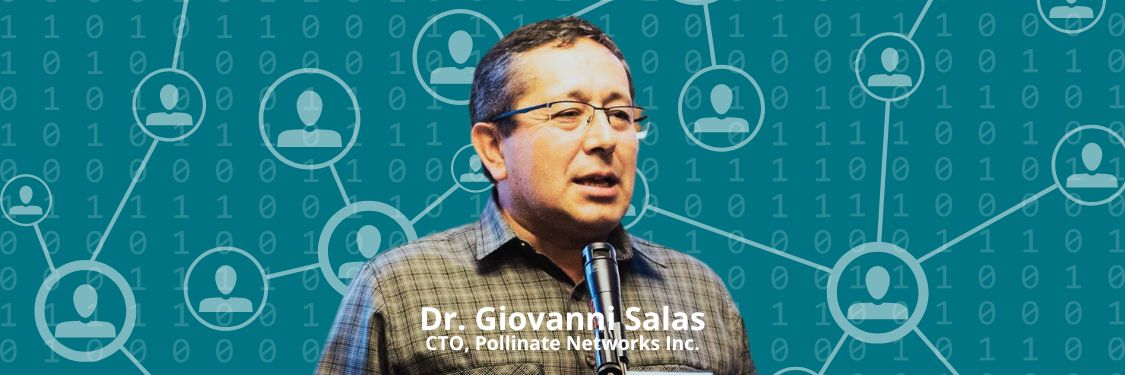
Across the globe, communities have been coming to terms with what it means to be in quarantine. We’ve been grappling with distancing ourselves from friends and family, working remotely (or not working at all), and only leaving the house if absolutely necessary. The virus struck, and it struck hard – taking us into the riptide without the promise of surfacing anytime soon. Everything suddenly flipped from fairly “normal,” everyday life, to a full-stop on the daily grind.
If you’re anything like me, the past few weeks have been challenging to fully accept that the current situation could be “our new normal” for the foreseeable future. On so many levels, this crisis is taking us into uncharted territory and reinforcing our collective need to stay resilient in the face of societal change.
Resilience in an emergency like COVID-19 can manifest in a variety of ways. It can come in the form of refocusing on creative pursuits, building virtual communities to stay engaged, grieving old routines, or trying to normalize an uncomfortable situation by changing our perspective of what is happening around us. But before we dive into how you can adapt and focus on what matters most, I’d like to discuss a helpful change management tool called the Stages of Change Model.
Stages of Change Model
Designed by psychologists Carlo DiClemente and James O. Prochaska, the Stages of Change Model is the central component of the Transtheoretical Model and was designed to illustrate how humans process change and assimilate new behaviours.
There are five stages to the model, which include:
- Pre-Contemplation (Not Ready)
- Contemplation (Getting Ready)
- Preparation (Ready)
- Action
- Maintenance (Persisting with the new Behaviour)
These stages are non-linear – meaning that people can move fluidly between them due to the complex nature of the human psyche. You’ll likely guess that because we aren’t perfect, most humans are unable to stay put in the Maintenance stage. Thus, there is an unofficial sixth stage called Relapse where the individual reverts to old behaviours. To keep things simple, I’m going to lay out an example to help you fully understand this model in a practical way.
Exercise is something everyone thinks about and rarely follows through with (e.g. New Year’s resolutions, am I right?). Some people are completely unaware that they might need to change their behaviour to make healthy lifestyle choices. This is called the Pre-Contemplation stage – otherwise known as the “ignorance-is-bliss” stage. Most of the time though, people are in the Contemplation stage of thinking about the actions they could take to assimilate a new exercise routine into their schedule. They haven’t yet taken action towards the new behaviour, but they are aware that it might be beneficial. In the Preparation stage, you might see someone make small steps – like joining the gym, buying workout clothes, or starting a new workout routine – but exercise is still not part of their daily routine.
If the person is truly ambitious and wants to see a healthy lifestyle change, exercise will become part of their routine and they will have officially entered the Action stage. The Action stage comes with a variety of learning opportunities, like figuring out that proper form is important to avoid injury while exercising.
To move to the Maintenance stage, the individual performs the new behaviour for at least six months without stopping. Should they fall out of line in the Maintenance stage, this is when Relapse occurs and the individual might need to re-enter at an earlier stage to get back on track.
So how does the Stages of Change Model fit with adapting to our

new normal? Think about it like this: in order to adapt to something new (like staying at home 24/7), it can take time to adopt new behaviours to match the environment. Understanding where we might be in the Stages of Change (or where we want to be) will help accelerate our adaptation.
At this point during the coronavirus pandemic, almost everyone has moved past the Pre-Contemplation stage because our daily rituals have shifted to the point where ignoring the changes to society is virtually impossible. Some of us may be in the Contemplation stage, thinking about how we can take action to maintain (or be) productive. Most of us are likely in the Preparation stage, testing out new work routines, hobbies or things that make us feel good but not fully adopting these actions as a longer-term solution. The point we need to get to is the Action stage – taking daily steps to stay well, engaged, and effective for as long as isolation lasts. Eventually, we hope to regain a sense of normalcy – also known as the Maintenance stage – even if the world is different than it was before.
Focusing on what matters most will help you stay effective in your new COVID lifestyle (both at work and in your personal life). Below are five simple steps you can take to adapt your current routine, regain a self of normalcy, and break into the Action stage, without pushing yourself too hard.
1. Find Focus in Creative Pursuits
Creativity is way more than just arts and crafts. Whether at work or in your free time, being creative can mean many different things. From baking to musical pursuits to gardening to researching a random subject or graphic design, the focus that comes with being creative provides an abundance of opportunities for your brain. Allow your creativity to distract you and generate those feel-good endorphins with a creative pursuit, whatever that might be.
2. Join or Create a Virtual Community to Stay Connected
Social media might not be the best place to spend a lot of your time right now, but being virtual is nearly essential to staying connected. When not on video conferencing applications (like Zoom or Google Hangouts) for work-related meetings or online classes, we’re touching base with our networks online. From Facebook to Reddit to Instagram (and even newer applications like Houseparty, TikTok, and Discord), the list goes on. It can be challenging to stay connected and stay focused with your newly virtual lifestyle. That’s why I’m recommending you and your team find a virtual place to call “home” online.
For organizations that need to connect virtually and focus on what matters most right now, Pollinate’s Virtual Knowledge Networks provide a flexible, online space for discussion forums, resource curation and collaboration.
3. Grieve, Breathe & Proceed
You’re not alone in feeling uncertain and uncomfortable with what’s going on in the world. You might even be grieving your sense of normalcy – like many of us. But it’s wise to remember that grief is not forever, and one of the best ways to move through it is through acceptance. Take a moment every day to clear your mind of any negative thoughts you might be having, take a few deep breaths, and accept what is going on around you. You’ll find that what comes out of accepting the present moment is a more simplified, less-scary version of what is making you feel so uncomfortable.
4. Shift Your Perspective of What ‘Normal’ Really Looks Like
Similar to acceptance comes my other favourite mental health practice: shifting perspective. Whether we like it or not, this situation is quite literally out of our control. So now is the time to take a step back, re-evaluate what you truly value, and gain a new perspective on what you can do to meet those needs. Now that you’re home all the time and not interacting with people in a physical setting, perhaps a daily check-in with your extended network will refresh that need. This is your moment to realize that it’s OK to change your routine and accept new behaviours at your own pace.
5. Understand Your Virtual Collaboration Style
Now is also a good time to get acquainted with your preferences around collaborating online. From work meetings to social gatherings, everything has moved online and you’re not alone if you’ve gotten frustrated at a Zoom meeting that became confusing, directionless, and downright chaotic.
Understanding your personal collaboration style is the key to becoming more effective and ultimately creating more synergy with the people you interact with online. Pollinate’s Knowledge Transfer Index assessment provides that insight by summarizing seven elements of your virtual collaboration style. We’re offering it free for individuals until the end of May. Take it today.
As you continue to navigate the changing landscape of this pandemic, remember to take it one step at a time. Don’t rush yourself through the stages of change. This is an unprecedented time that requires unprecedented measures to protect ourselves from exhaustion. Stay resilient, stay well, and keep pollinating!



